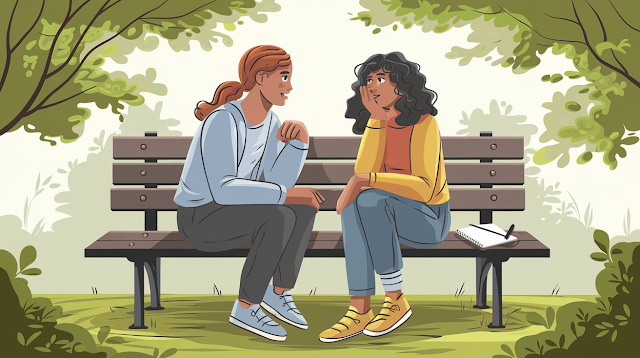Actions That Cost You Friendships
Friendships are built on trust, mutual respect, and shared joy. They thrive when both parties are willing to nurture the connection, offering support and understanding. However, certain actions can unintentionally or even deliberately sabotage these relationships, leading to misunderstandings, hurt feelings, and eventual separation. Let’s explore some common behaviors that cost friendships and how to avoid them.
The Importance of Being Joyful
Everybody enjoys the company of someone who radiates joy. Being joyful doesn’t mean you never have bad days—it’s about maintaining an optimistic attitude even when life gets tough. Joyful people tend to:
- Focus on your good qualities
- Encourage you when you’re down
- See through your pain and offer help
This attitude fosters connections and draws people closer. On the other hand, negativity and a perpetual sense of dissatisfaction can repel even the closest friends.
Self-Centeredness: A Friendship Killer
When friendships or relationships fall apart, both parties often blame each other. Each has their version of events, usually portraying themselves as the victim. Why does this happen?
Self-centeredness is often at the root. A self-centered person:
- Sees themselves as the victim in every situation
- Has high expectations of others but rarely reciprocates
- Fails to introspect or improve on personal shortcomings
It’s easier to list what you expect from others than to ask yourself, "What do I offer as a friend?" Regular self-reflection is essential to maintaining healthy relationships.
Introspection: The Key to Growth
One major reason friendships fade is the lack of self-awareness. Many people live day-to-day without pausing to confront their flaws or improve their behavior. However, failing to address undesirable habits can lead to:
- Embarrassment when others point out your flaws
- Anger and denial when confronted
- Grief over lost friendships
To avoid this, practice regular introspection. Ask yourself:
- Do I listen enough?
- Am I supportive of my friends' goals and struggles?
- Do I overuse sarcasm or make hurtful comments?
Universally Frowned-Upon Behaviors
While expectations in friendships vary, certain behaviors are universally disliked. Here are some to watch out for:
1. Overusing Sarcasm
- Sarcasm can add humor to conversations, but excessive use can make you seem cold or mean.
- Gauge your friends’ moods before making sarcastic remarks.
- Use sarcasm sparingly, and only with those who appreciate it.
2. Hogging Conversations
- If you’re the one always speaking, pause and let others share.
- Encourage quieter friends to speak; you’ll be surprised by the insights they offer.
3. Arrogance
- Confidence attracts friends; arrogance drives them away.
- Arrogant people rarely apologize, dismiss others’ opinions, and act superior.
- Reflect on your behavior and ensure you’re not inadvertently acting this way.
Building Confidence Without Arrogance
Confidence is a valuable trait that helps you connect with others. It shows that you believe in your worth and allows others to feel at ease around you. To cultivate confidence:
- Practice self-acceptance.
- Engage in activities that improve your skills.
- Speak positively about yourself and others.
Avoid crossing into arrogance by:
- Acknowledging others’ contributions.
- Apologizing when you’re wrong.
- Remaining open to feedback.
The Power of Active Listening
Listening is a fundamental aspect of friendship. Often, we’re so focused on what we want to say that we forget to truly hear the other person. Active listening involves:
- Giving your full attention when someone speaks.
- Avoiding interruptions.
- Responding thoughtfully to show you understand.
By listening more and speaking less, you’ll make your friends feel valued and respected.
Actions That Strengthen Friendships
Friendships require effort and intentionality. Here are ways to strengthen your connections:
1. Show Appreciation
- Regularly express gratitude for your friends.
- Celebrate their successes, big or small.
2. Be Reliable
- Keep your promises.
- Show up when they need you.
3. Offer Support
- Be there during tough times, not just the good ones.
- Offer help without waiting to be asked.
4. Embrace Constructive Criticism
- Invite feedback from your friends on how you can improve.
- Accept criticism graciously and use it to grow.
Conclusion: Effort Matters
Friendships, like any relationship, require effort and self-awareness. While none of us are perfect, what truly matters is our willingness to grow and improve.
To maintain healthy, thriving friendships:
- Practice introspection.
- Avoid behaviors like sarcasm, arrogance, and self-centeredness.
- Cultivate joy, confidence, and active listening.
Invite your friends to share their honest feedback about you. Not only will this strengthen your bond, but it will also inspire them to embrace their flaws and strive for self-improvement. In the end, the most important thing is to foster happy, progressive relationships that bring out the best in everyone involved.




.png)




.png)
.png)


